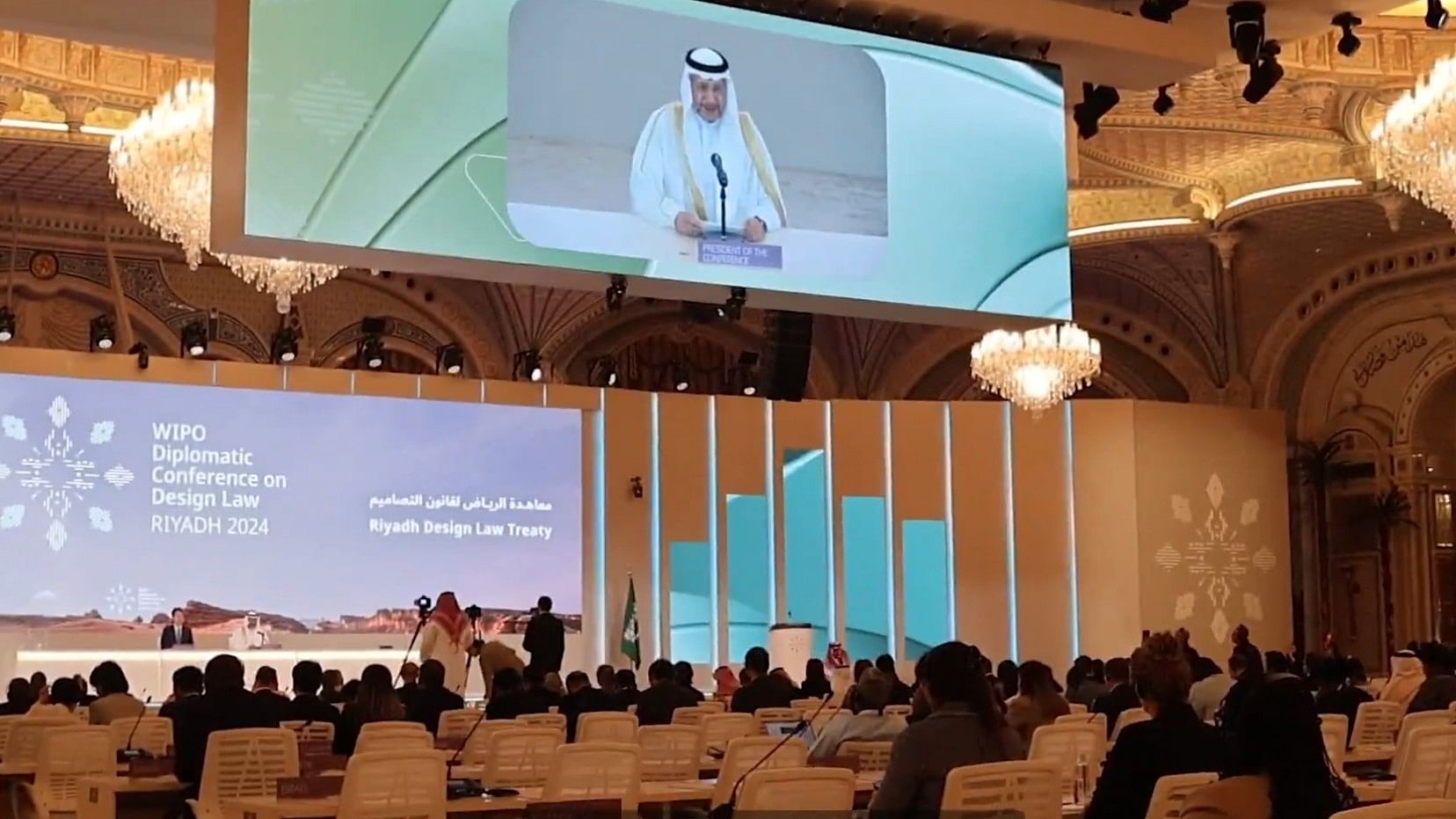
WIPO Member states at the adoption of Riyadh Design Law Treaty.
Credit: X/@WIPO
New Delhi: India has signed Riyadh Design Law Treaty, which seeks to harmonise procedures and simplify registration processes of industrial designs in different countries, an official statement said on Tuesday.
After nearly two decades of negotiations, the member states of the World Intellectual Property Organization (WIPO) adopted the Design Law Treaty (DLT), the commerce and industry ministry said.
"By signing the Final Act of the Riyadh Design Law Treaty, India builds on its progress and reaffirms its commitment to fostering inclusive growth and ensuring equitable access to intellectual property protection," it said.
The treaty seeks to harmonise the procedural frameworks for industrial design protection, improving the efficiency and accessibility of registration processes across multiple jurisdictions, it added.
The DLT introduces several key provisions aimed at benefiting design applicants, including relaxed time limits, the reinstatement of lost rights, the option to correct or add priority claims, simplified procedures for recording assignments and licenses, and the option to file multiple designs in a single application.
The treaty also encourages contracting parties to work towards implementing electronic industrial design systems and facilitating the electronic exchange of priority documents.
Over the past decade, design registrations in India have tripled, with domestic filings increasing by 120 per cent in the last two years.
WIPO has over 190 members.